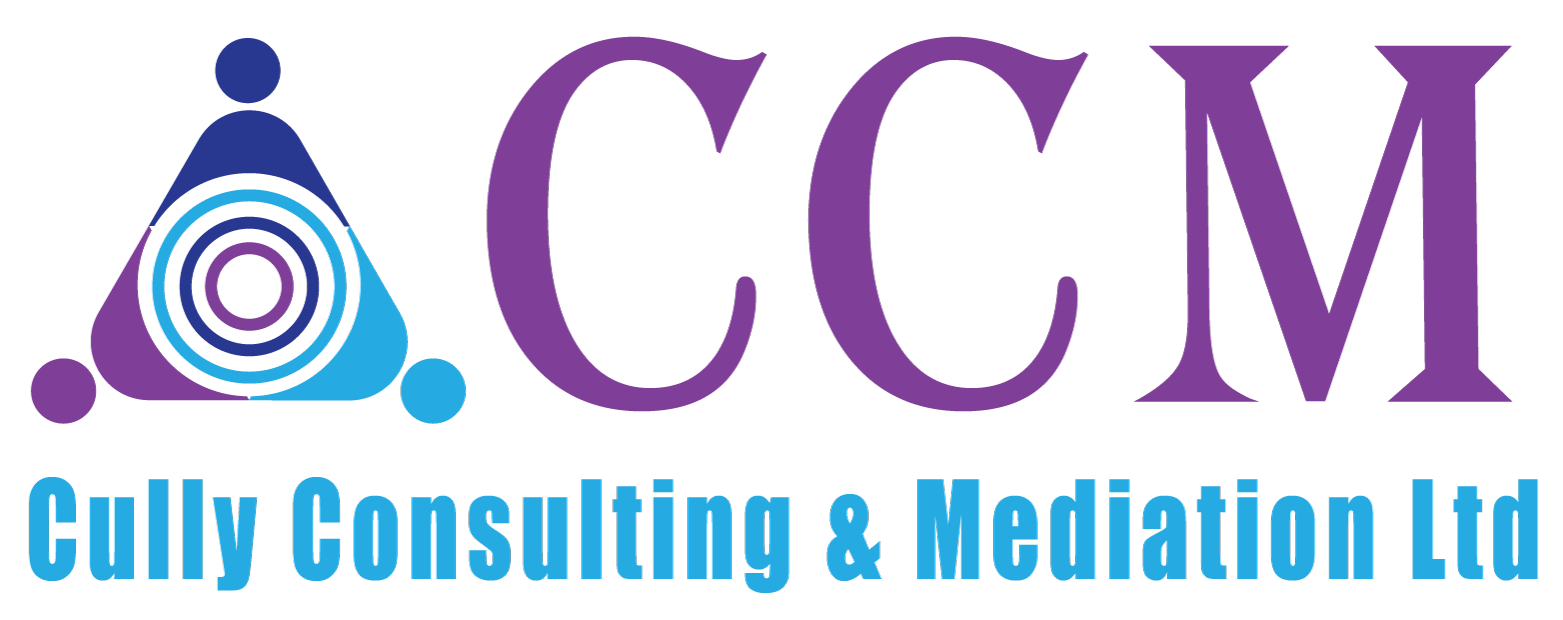Let Our Experience Be Your Guide
F.A.Q.
Do you Have some questions?
I can help answer any questions you have related to the mediation process, the time it takes, how it will impact your children and what it costs.
Feel free to call me if you have more questions and we can have a free initial consultation.
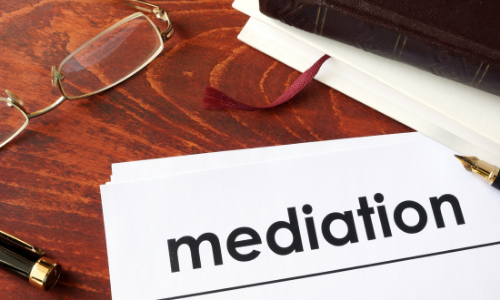
What is mediation?
Mediation is a collaborative process facilitated by a neutral third party. It allows the involved parties to negotiate a settlement that meets their individual needs while still following the legal boundaries. It is a confidential process that allows you more freedom to design your best terms for your future.

Can I use mediation if my partner and I are not in agreement?
YES! This is on of the most common misconceptions. Often having a neutral third party involved takes the tension down and allows for an effective solution-based conversation.
With the knowledge and history of the law and other creative solutions it is usually easier and faster to find the right solution for you.

Do you have Covid safety measures in place?
Early in the pandemic I achieved a certification in Online Dispute Resolution. Therefore I have been offering virtual sessions through Zoom. In the cases where we did meet in person all precautions were followed.
This has been a successful addition to my business and I intend to continue offering this option in the future.
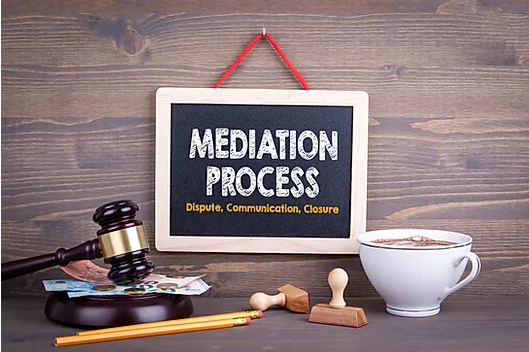
What is the process?
I get asked this a lot. There is no one size fits all answer. Everyone’s process is a little different depending on your needs and situation. Having said that, here is an outline of the basics of a standard mediation. First I meet individually with each party, this is called an intake. Once the intakes are completed and all parties agree to proceed we move into the mediation process. This is usually a meeting with all parties and sometimes their counsel (or other approved professionals) to discuss the items in conflict. After each mediation meeting you are forwarded a “Mediation Report” this is not a legal document but more of a meeting minutes. The number of meetings needed and length of each meeting varies in each situation.
Once the terms of your specific agreement have been agreed on, a formal agreement is drawn up. It is then up to you to take that agreement to lawyers (if you choose to), have it signed and file it with the courts.

How long is the process?
The length of mediation depends in part on the issues at hand, the cooperation of the parties and the readiness of the parties to settle. Most of my cases can be settled in 1-3 meetings. Keeping in mind I prefer fewer longer meeting (2-3 hr). Having said that, as we work at your pace some take longer for a variety of reasons.

How much does it cost?
I offer 2 options
#1 – An hourly rate which includes the meeting time as well as any administrative time. There is also a standard fee for the legal database that is passed directly onto the clients.
#2 – A flat rate option is also available. This must be negotiated ahead of time and some conditions apply. This option involves the meetings, administration, and the legal database.
*I have also offered ongoing support to individuals who required it through the process at a reduced rate.

What is the benefit of using mediation instead of litigation?
Traditionally the legal system is set up for “combat.” This is a format designed with a win/lose mentality. When utilizing 2 lawyers whose goal is to “win” over the other; the ability to reach an agreement that is acceptable to both parties becomes more lengthy and costly.
Mediation uses a neutral party that is focused on finding the best solution for your situation that is still within the parameters of the law. As mediators we are trained to find a common collaborative ground that all parties can live with. Your individual circumstances and long-term solutions are the focus.

What areas are covered in mediation?
Mediation can solve any dispute you have where a neutral third-party negotiator would be of benefit. Parental planning and separation agreements are the most common areas within family mediation.
When conduction family mediation such as separation we focus on the areas that are most important to your situation. This usually includes finances, children, assets and future planning concerns for example future partners and dependents post secondary.

I have children. How will this help them?
Mediation is a private process keeping your children out of the courts. My focus is always what’s best for the children first and foremost. When devising a parental plan the main objective is to make sure the plan is in the best interest of the children for the long term.
However, parental plans are what we call living documents and thus depending on the age of the children and your changing situation, they may need to be revamped as the children grow and their needs change.
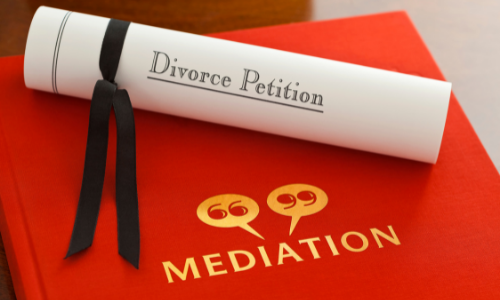
The Divorce Act has changed. What does this mean for my separation?
The main changes you will likely hear about are the use of the terms “Custody” and “access”.
Custody was historically used to define who had the legal guardian rights for the children, who they lived with and who made the parenting decisions. March 1, 2021 one of the changes made was that this is now defined as “Parenting Responsibility,” which is what it truly is. If you have been awarded with sole parenting responsibility it gives you the signing authority to make the legal decisions regarding that child.
Access historically was the parents ability to see and spend time with the child. Therefore, the change to “parenting time” is really far more self explanatory. You may have unlimited parenting time available and still not have the parenting responsibility.

Do I still need a lawyer?
This depends on a few things. It is always suggested to have legal advise throughout the process. If you have a complicated case with strong legal implications it may be necessary to have one more directly involved in the process. Many couples choose to have a lawyer look over their agreements for their own comfort.
Why go to a mediator if you are going to consult with a lawyer?
Lawyers are legally trained to win. Mediation gives you more control over the process and solutions. Also the cost of each party engaging a lawyer is significantly higher.
It is not uncommon for people to have a lawyer they will consult with when they deem it appropriate while still managing to keep the collaborative process flowing well.
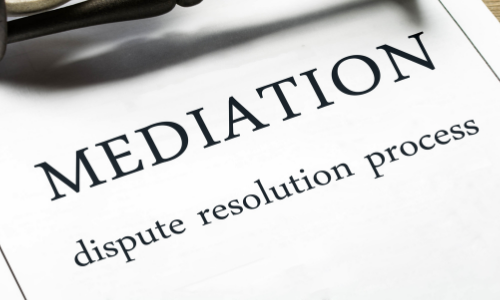
What if my partner and I are not able to agree?
Although we are trained to assist you in find the best solution for both parties and moving on more peacefully, there are instances where the parties will be stuck at an impasse. These are often specific to one or two items. Depending on the items we can often guide the parties to a creative solution. However, in the event we are unable to you can have an interim agreement with the items you have settled.
This will allow you to move forward in the appropriate manner with only the most contentious item and not the entire agreement.

If you are a neutral party, how can I be sure you have my best interest in mind?
One of the big misconceptions I hear is that people are afraid they will be blind sighted by not knowing what they are or are not entitled too and that as a neutral party a mediator will not advise them well. As a mediator we are trained to ensure all parties are aware of the governing laws and rights. However, if you are both in agreement with waiving certain rights then my responsibility has been fulfilled. I am obligated to ensure you are all aware but will not push or encourage you to fight for something you are not wanting.
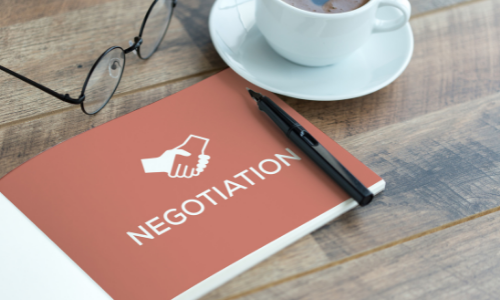
What if we are in agreement on matters and don't think we need to "negotiate" anything?
This can make for a clear and more efficient process. However, even in these situations it is important to ensure your agreement is legally viable. There are often areas that I cover in mediation that people do not think of or discuss. My goal is to help you live a more conflict free future, therefore, we may get into some sensitive topics. This allows you to have an understanding ahead of time and better avoid future conflict.

Can we mediate even though we have to continue residing together?
It is not necessary to wait until you can make all the life changes in order to get started on your process. In fact many would argue that it may be more detrimental to continue in the conflict situation. There are different options available that will allow for both parties to move forward in a more effective and collaborative manner. Some of these include nesting, interim agreements or future stipulations added to the agreements.

If you are not a lawyer then how can I be sure you are capable of guiding me correctly?
It is correct that I, like many mediators, am not a lawyer. However, the governing associations (which I belong to a few) requires that you have successfully completed a related post-secondary degree or diploma as well as a mediation certificate. But that is just the beginning, we are also required to take specific ongoing training in many areas including Family Law, Domestic Violence, ethics and property law. To remain in good standing, members must continue to upgrade and stay current in these areas. Above and beyond that, I personally take any supplemental training offered through these governing bodies or other credible sources, that I feel would better my skills and clients.
